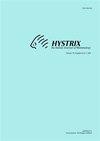The cost of living in the city. Causes of incidents with mammals and factors that influence their frequency in Warsaw.
IF 1.2
4区 生物学
Q1 ZOOLOGY
引用次数: 2
Abstract
Numerous wild species have managed to adapt to the specific conditions of the urbanized environ- ment. Wild animals take advantage of the microclimate conditions and the available hiding places or food; however, they are also exposed to various risks in this environment. The aim of this study was to determine the causes of incidents between wild mammals and human infrastructure and activity in the city of Warsaw and to evaluate the effectiveness of an animal rehabilitation center. The second aim was to assess the factors (weather and land cover) that influence incidents involving wild mammals in Warsaw. We found that human infrastructure and activity cause most of the wild mammal incidents in the city. The frequency of small mammal incidents in Warsaw was dependent on the weather, mainly the ambient temperature. The proportion of built-up areas was usually as- sociated with the number of such incidents. This relation was positive for species that tend to live in cities, and it was negative for species that avoid human proximity.城市的生活成本。哺乳动物事件的原因和影响其在华沙发生频率的因素。
许多野生物种设法适应了城市化环境的特殊条件。野生动物利用小气候条件和现成的藏身之处或食物;然而,在这种环境下,他们也面临着各种风险。本研究的目的是确定瓦沙市野生哺乳动物与人类基础设施和活动之间事件的原因,并评估动物康复中心的有效性。第二个目的是评估影响华沙涉及野生哺乳动物事件的因素(天气和土地覆盖)。研究发现,城市野生哺乳动物事件主要由人类基础设施和活动引起。华沙小型哺乳动物事件发生的频率取决于天气,主要是环境温度。建成区的比例通常与此类事件的数量相关联。对于那些倾向于生活在城市的物种来说,这种关系是正的,而对于那些远离人类的物种来说,这种关系是负的。
本文章由计算机程序翻译,如有差异,请以英文原文为准。
求助全文
约1分钟内获得全文
求助全文
来源期刊
CiteScore
2.40
自引率
0.00%
发文量
0
审稿时长
21 weeks
期刊介绍:
Hystrix the Italian Journal of Mammalogy accepts papers on original research in basic and applied mammalogy on fossil and living mammals. The Journal is published both in paper and electronic "online first" format. Manuscripts can be published as full papers or short notes, as well as reviews on methods or theoretical issues related to mammals. Commentaries can also be occasionally accepted, under the approval by the Editor in Chief. Investigations of local or regional interest, new data about species distribution and range extensions or confirmatory research can be considered only when they have significant implications. Such studies should preferably be submitted as short notes. Manuscripts bearing only a local interest will not be accepted.
Full papers have no limits in length as well as in figure and table number and are abstracted in English. Authors are encouraged to add supplemental material in form of colour figures, original datasets and/or computer program source code.
Supplemental material and colour figures will appear only on the electronic edition.
Short notes must be about 16000 characters long (including title, author names and affiliations, abstract and references), and do not include supplemental material. They are abstracted in English.
Proceedings of symposia, meetings and/or workshops, and technical reports can be published as special supplements to regular issues, under the approval by the Editor in Chief and the Associate Editors.
There are no page charges.

 求助内容:
求助内容: 应助结果提醒方式:
应助结果提醒方式:


